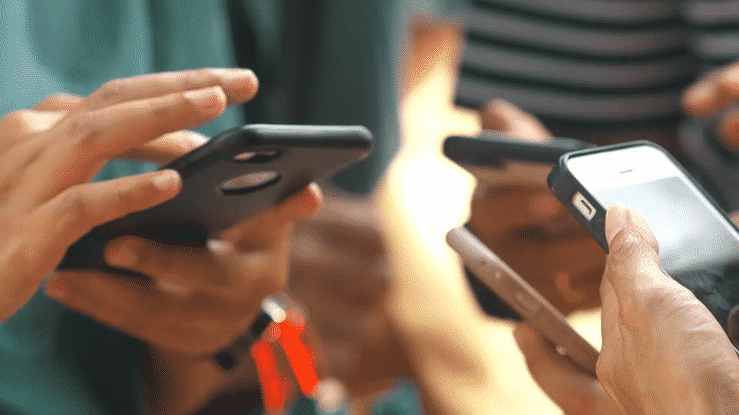Today, social media has become an integral part of our lives. We share, tweet, and post about everything, from our daily adventures to personal experiences. But have you ever thought about how these social media posts can impact your personal injury case?
In this article, we dive deep into social media, social networking privacy concerns, and their potential effects on your personal injury case. We explore how your online activity can be used against you in court, affecting the outcome of your claim.
Therefore, before you hit that “post” button, it is crucial to understand the potential consequences of your online presence. Above all, remember that what you say or share online may have more weight than you think.
The Importance of Privacy Settings on Social Media
Privacy settings on social media platforms have become more crucial than ever, especially for individuals involved in a personal injury claim. Many users underestimate the significance of these settings, believing that their accounts are secure simply because they limit their audience to friends and family.
However, insurance companies and legal representatives can often find ways to access public posts, and even private posts can be subpoenaed in legal proceedings. Therefore, it is essential to understand and regularly update your privacy settings to ensure your online presence does not inadvertently harm your case. Remember, what may seem like an innocent post can be twisted and used against you if it falls into the wrong hands.
Moreover, it is essential to remember that even with strict privacy settings, nothing is truly private once posted online. Screenshots and shared posts can quickly circulate beyond your intended audience. Therefore, consider your online interactions carefully before posting.
If you are in the midst of a personal injury case, err on the side of caution and limit your online sharing. The less information available about your daily activities, the less ammunition insurance adjusters and opposing counsel have to undermine your claim.
How Insurance Companies Use Social Media Posts as Evidence
Insurance companies have become increasingly savvy in utilizing social media for investigation. When a claim is made, adjusters often conduct thorough searches of an individual’s online presence to gather evidence that could contradict that person’s claims.
In other words, harmless posts, photos, or comments could be scrutinized and used to argue against the validity of your injury or the extent of your damages. The digital footprint you leave can have real implications for the outcome of your personal injury case.
For example, suppose you post pictures of yourself engaging in physical activities after an incident where you claim to have sustained serious injuries. In that case, these images may be presented in court to challenge your credibility.
Insurance companies are adept at interpreting social media content to paint a narrative that is favorable to them. They may argue that your injuries are exaggerated or that you are not as incapacitated as you claim. This tactic underscores the importance of maintaining a consistent account of your condition. Above all, we should avoid any online content that could be misconstrued.
Insurance companies may also monitor your interactions and comments to assess your mental and emotional state post-accident. Posts that indicate a positive emotional state or significant social activity can be used to argue that you are not suffering as severely as claimed.
It is crucial to remember that your social media posts may be viewed as evidence, and what you share can have a lasting impact on your personal injury case.
Examples of Social Media Posts That Can Negatively Impact a Personal Injury Case
There are numerous ways that social media content can inadvertently undermine a personal injury claim. One typical example is sharing updates about your emotional state or well-being. Suppose you post about feeling happy and enjoying life after a car accident.
In that case, this can be interpreted as a sign that you are not suffering from the injuries or trauma you claim to have experienced. Courts and insurance companies may see these posts as evidence that your claims are exaggerated or insincere. Be mindful of how your posts could be perceived and their potential implications on your case.
Even seemingly innocent posts can have unintended consequences. For instance, sharing a photo with friends or family, where you appear to enjoy life, could be taken out of context and used against you.
Insurance companies will look for opportunities to challenge your claims and demonstrate that you are not as injured as you assert. Therefore, it is crucial to be aware of the content you post and how others may interpret it.
Tips for Protecting Your Personal Injury Case on Social Media
Adopting a cautious and strategic approach to social media use is paramount to safeguarding your personal injury case. First and foremost, consider temporarily deactivating your accounts or, at the very least, refraining from posting anything during your case. While this may feel extreme, it is often the safest choice in a legal context where every detail can matter.
Audit your past posts and remove any that could be deemed controversial or potentially damaging to your case. This proactive approach can help minimize the risk of compromising your legal standing.
Another essential tip is to avoid discussing your case online altogether. Refrain from posting about the details of your injury, the legal process, or even your feelings about the case. Even well-meaning updates can be misconstrued or lead to unintended consequences. Instead, focus on sharing content that does not relate to your circumstances or legal issues.
Conclusion: The Importance of Being Cautious About Social Media Use During a Personal Injury Case
In conclusion, social media can significantly impact your personal injury case. Therefore, understanding this reality is essential for anyone involved in legal proceedings. The potential for posts to be misconstrued or used against you highlights the need for caution in your online interactions.
While helpful, privacy settings are not foolproof, and your social media footprint can have lasting consequences for your case.
As you navigate the complexities of your personal injury claim, adopting a mindful approach to social media is crucial. These steps can help protect your interests and ensure your social media activity does not undermine your claim.
Schedule a Consultation with Preston, Wilson & Crandley, PLC
Avoid discussing your case online, and consult with an experienced personal injury attorney about your online presence.
At Preston, Wilson & Crandley, PLC, we are here to help ensure you receive the support and compensation you deserve.
We have been helping the people of Virginia since 1955 and are ready to help you. Schedule a consultation to discuss your case.







